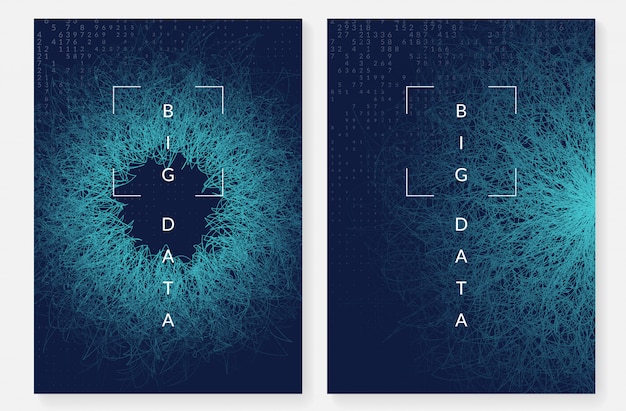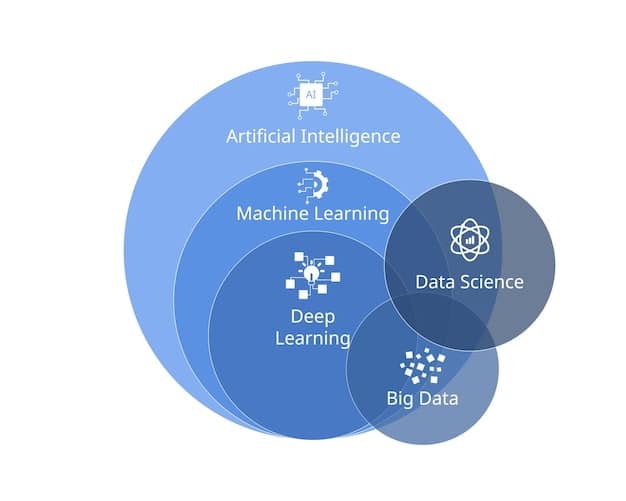The Future of Book Reviews: AI, Readers, and Content Analysis

The future of book reviews is rapidly evolving, with AI-powered analysis tools and reader-generated content playing increasingly significant roles in how books are discovered and discussed, shaping literary discourse for readers. Understanding this shift requires exploring both its opportunities and challenges.
The landscape of book reviews is undergoing a profound transformation. As technology advances and readers become more actively involved, the traditional model of expert critics holding sway is giving way to a more diverse, democratized ecosystem. This shift is largely driven by two key factors: the rise of the future of book reviews and its impact on the literary world.
Let’s explore how these forces are reshaping how we discover, evaluate, and engage with literature.
The Evolving Role of AI in Book Review Analysis
Artificial intelligence is no longer a futuristic concept; it’s actively shaping various industries, and the realm of book reviews is no exception. AI-powered tools are emerging to analyze literary works with unprecedented speed and scale. This section explores the practical applications of AI in understanding and summarizing books.
AI-Driven Sentiment Analysis
AI algorithms can now analyze text and determine the emotional tone expressed within. What does this mean for book reviews?
- Identifying Themes: AI can discern the central themes and motifs in a book with greater efficiency than manual analysis.
- Predictive Reviews: Algorithms can forecast potential reader reactions by analyzing early reviews and online discussions.
- Objective Summaries: AI can provide neutral summaries that strip away subjective bias, giving readers a concise overview.
AI can also assist authors and publishers by providing feedback on potential reader reception.

The Limitations of AI-Driven Analysis
While AI offers considerable benefits, it is important to acknowledge its limitations in the nuanced world of literary criticism. Here are potential downsides:
- Lack of Context: AI may misinterpret cultural references, sarcasm, or subtext, leading to skewed analysis.
- Algorithmic Bias: AI systems are trained on data, and if that data reflects existing biases, the AI’s analysis will be skewed.
- Absence of Human Insight: AI cannot replicate the subjective insights and emotional connection that human reviewers bring.
It is essential to approach AI-driven analysis as a tool to augment, not replace, human judgement.
In conclusion, AI is transforming book review analysis by providing efficient sentiment analysis and theme identification. However, its limitations, such as a lack of context and potential for bias, must be carefully considered.
The Surge of Reader-Generated Content in Book Reviews
Beyond formal reviews, platforms hosting reader-generated content are becoming increasingly influential. This shift democratizes literary criticism, allowing a broader audience to participate in shaping the reception of books. Here’s an examination of why this trend is gaining traction.
The Power of Community Reviews
Online platforms where readers can share their thoughts are changing the way books are discovered and discussed. What draws people to these sites?
- Diversity of Perspectives: Reader reviews provide a wide array of opinions, reflecting varied tastes and backgrounds.
- Direct Engagement: Authors can interact directly with readers, gaining immediate feedback and fostering a sense of community.
- Authenticity: Many readers trust peer reviews more than professional critics, perceiving them as more genuine.
This system can also enhance the discoverability of niche books that might be overlooked by mainstream media.
Challenges in Reader-Generated Content
Though primarily positive, reader-generated content also has limitations that call for caution. Things to consider concerning crowdsourced reviews:
- Potential for Manipulation: Authors or publishers may attempt to artificially inflate ratings and reviews.
- Variability in Quality: Reader reviews can range from insightful critiques to brief, unqualified endorsements or dismissals.
- Echo Chambers: Readers may seek out reviews that align with their existing opinions, reinforcing biases.
Strategies must be developed to maintain the integrity of reader generated review systems.
In summary, reader-generated content has democratized book reviews by offering diverse perspectives and direct engagement, but challenges like potential manipulation and variability in quality must be addressed to ensure reliability.
Blending AI and Reader Insights for Comprehensive Reviews
Combining AI-driven analysis and reader-generated reviews can provide a multifaceted perspective on a book, offering readers a more comprehensive understanding. The synergy of these approaches can help readers make informed decisions about what to read.
The Benefits of a Hybrid Approach
What can be achieved by uniting advanced tech and human perspective in gauging literature?
- Enhanced Objectivity: AI can provide an initial objective analysis, identifying key themes and sentiment trends.
- Contextual Understanding: Reader reviews can add nuance and context, interpreting cultural references and emotional resonance.
- Efficient Information Synthesis: AI can summarize vast amounts of reader feedback, highlighting common themes and concerns.
This combination can lead to more balanced and insightful book evaluations.

Challenges in Integrating Different Sources
Effectively integrating AI and reader reviews presents practical challenges. Considerations must be made about:
- Data Verification: Combating fake reviews and ensuring the authenticity of reader-generated content.
- Algorithm Calibration: Tuning AI algorithms to accurately interpret human feedback and minimize bias.
- Presentation and Visualization: Presenting complex data in an accessible and user-friendly manner.
Overcoming these challenges is key to unlocking the full potential of this integration.
In conclusion, combining AI with reader-generated reviews offers a comprehensive, balanced understanding of books, but data verification and algorithm calibration are crucial for success.
Navigating the Ethical Considerations in AI Book Reviews
The use of AI in book reviews brings with it a range of ethical considerations that publishers, authors, and readers must navigate responsibly. Protecting reader privacy and maintaining the integrity of reviews are paramount.
Algorithmic Transparency
How can we ensure the neutrality and fairness of AI algorithms, given possible biases creeping in?
Ensuring that AI algorithms are transparent and free from bias is essential. This involves:
- Open Data: Promoting the use of diverse and representative datasets to train AI models.
- Regular Audits: Conducting regular audits to identify and correct biases in AI algorithms.
- Explainable AI: Developing AI systems that can explain their decision-making processes, fostering trust.
Addressing this will help combat skepticism and promote wider acceptance.
Safeguarding Privacy
Protecting user data is a matter of growing concern as more and more is gathered to improve AI processes. Consider these points:
Protecting reader privacy is paramount when using AI to analyze book reviews. Measures to be taken include:
- Data Anonymization: Anonymizing reader data to prevent identification of individuals.
- Informed Consent: Obtaining informed consent from readers before collecting and analyzing their data.
- Data Security: Implementing robust security measures to prevent data breaches and unauthorized access.
Maintaining confidentiality shows consideration for customers’ well-being.
In conclusion, ethical considerations in AI book reviews, like algorithmic transparency and safeguarding privacy, are crucial for maintaining trust and ensuring fair, unbiased evaluations.
The Impact on Authors and Publishers
The changing landscape of book reviews significantly affects authors and publishers, who must adapt their strategies to engage with AI-driven analysis and reader-generated content effectively. Here is how they are affected.
Adjusting to a New Review Paradigm
How should literary professionals react, now that things have changed so dramatically?
Authors and publishers must adapt to this new reality by:
- Monitoring Online Feedback: Paying close attention to reader reviews and online discussions.
- Engaging with Readers: Actively participating in online communities and responding to reader feedback.
- Incorporating AI Insights: Using AI-driven analysis to identify areas for improvement in their books and marketing strategies.
Being proactive makes a big difference for reaching the target demographic.
Leveraging Community Engagement
Actively interacting with readers can garner great benefits for authors. Consider:
Community engagement will benefit from:
- Building Relationships: Fostering relationships with readers and influencers to promote their books.
- Soliciting Feedback: Seeking out reader feedback during the writing process to improve their books.
- Creating a Community: Creating a community around their books to generate excitement and anticipation.
Interacting with customers adds value to publications.
In conclusion, authors and publishers must adapt to the new review paradigm by monitoring feedback, engaging with readers, and incorporating AI insights to effectively promote their books and build a community around their work.
Future Trends and Predictions for Book Reviews
Predicting the future of any industry is challenging, but several trends point toward what book reviews might look like in the coming years. Expect further integration of AI, personalized review experiences, and immersive technologies.
Personalized Recommendations
Individualized content will become more prominent, providing great value for the average user. What to know:
Personalized book recommendations are likely to become more precise and customized, with these factors:
- AI-Driven Curation: AI algorithms will analyze reader preferences to provide tailored recommendations.
- Interactive Reviews: Readers will be able to interact with reviews, asking questions and receiving personalized feedback.
- Virtual Book Clubs: Online communities where readers can discuss books and share recommendations.
This will create a powerful tool for selling literature.
Immersive Engagement
Augmented reality and more will change the way critics and average readers do things. Keep in mind:
Immersive technologies will enhance the book review experience by:
- Virtual Tours: Allowing readers to explore virtual settings from books.
- Character Interactions: Enabling readers to interact with virtual characters.
- Augmented Reality Apps: Providing augmented reality overlays that enhance the real-world reading experience.
This evolution will immerse readers in unprecedented ways, adding extra dimensions to books.
To conclude, future trends in book reviews will involve personalized recommendations driven by AI and immersive technologies that enhance reader engagement, marking a significant shift in how literature is consumed and discussed.
| Key Point | Brief Description |
|---|---|
| 🤖 AI Sentiment Analysis | AI identifies themes and predicts reader reactions in book reviews. |
| 🧑🤝🧑 Reader Content | Reader-generated reviews offer diverse perspectives and direct author engagement. |
| ⚖️ Ethical AI Use | Transparency and data privacy are crucial in AI-driven analysis. |
| 🔮 Future Trends | Expect personalized recommendations and more immersive reading experiences. |
Frequently Asked Questions
AI algorithms scan text, identifying key words and phrases that carry emotional weight. By categorizing these, AI can determine the overall sentiment of a review, whether positive, negative, or neutral.
Reader reviews provide a diverse range of opinions, reflect varied tastes, and allow direct engagement with authors. They often enhance the discoverability of niche books overlooked by mainstream media.
Ethical considerations include ensuring algorithmic transparency to avoid bias, safeguarding reader privacy through data anonymization, and obtaining informed consent before collecting and analyzing data.
Authors can adapt by monitoring online feedback, incorporating AI insights to enhance their work, and engaging with readers in online communities. Being proactive helps an author reach their audience more effectively.
Future trends include more personalized recommendations driven by AI, virtual reality tours of book settings, and augmented reality apps that will enhance real world engagement, ultimately enriching the reading experience.
Conclusion
In conclusion, the future of book reviews is being shaped by the combined forces of AI-powered analysis and reader-generated content. As technological sophistication advances and readers engage more actively, it’s important to critically assess these changes.
By blending the strengths of AI and human insights while carefully navigating ethical implications, we can foster a diverse literary ecosystem that both authors and readers enjoy.





